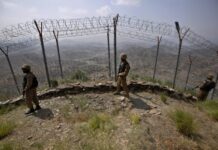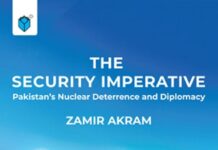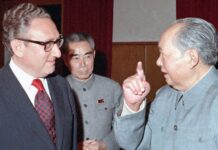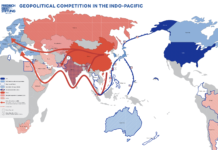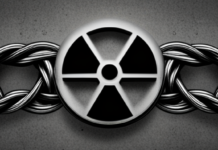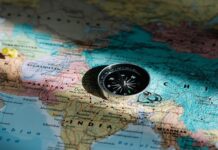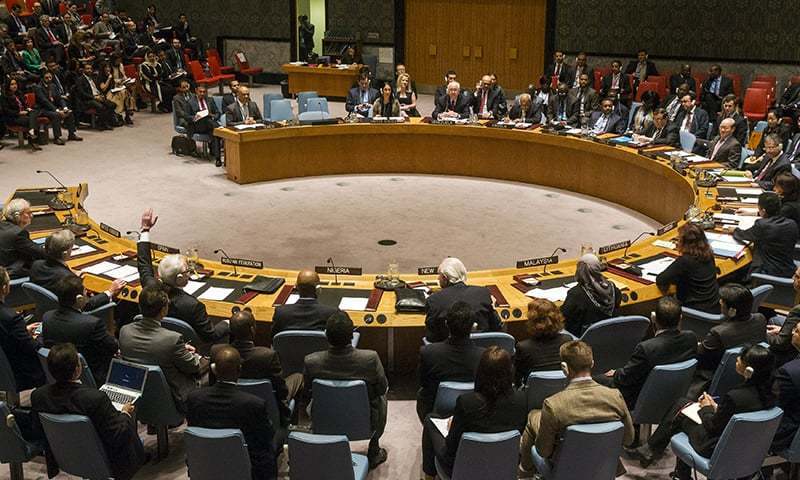Hassan Aslam Shad
Media was rife with reports last week about the United Nations General Assembly (UNGA) adopting a Pakistan-sponsored resolution on the peoples’ right of self-determination titled “Universal realization of the right of peoples to self-determination”. For many watchers in Pakistan, this was good news, with most of them wanting to see more momentum go into Pakistan’s Kashmir lawfare. Was this enthusiasm well-founded?
Ambassador Munir Akram, Pakistan’s Permanent Representative to the United Nations, reportedly exclaimed that “By adopting our [Pakistan’s] resolution, the General Assembly has reaffirmed our legal, political and moral case in support of all peoples, including the Kashmiri people, to struggle for self-determination against foreign occupation by all means available to them”.
Interestingly, whilst the Pakistani media flashed news about the UNGA resolution, conspicuously absent was any international media coverage. Could this, then, be a pie in the sky for Pakistan, or are its efforts on the Kashmir front truly gaining some traction? The truth lies somewhere in between. Let us unpack this further.
The UNGA resolution – whose draft is not publicly available – is with reference to the right of self-determination of ‘all peoples’ struggling against ‘colonial, foreign and alien occupation’. It was passed by 168 votes in favour to 5 against with 10 abstentions. Importantly, the resolution was followed by another UNGA resolution titled “The right of the Palestinian people to self-determination”. The author is not aware of any Kashmir-specific resolution passed by the UN in recent history. Proverbially speaking, one is therefore tempted to ask: are Kashmiris the children of a lesser God for the international community?
Although supporting peoples’ rights of self-determination continues to remain the “cornerstone of Pakistan’s foreign policy” and it has rightly created a moral equivalence between Kashmir and Palestine, the international community continues to view Kashmir and Palestine differently. Historically, Pakistan’s otherwise strong case over Kashmir (or Indian Illegally Occupied Kashmir as it is now called officially by Pakistan) was somewhat diluted owing to Pakistan treating Kashmir as a ‘territorial’ dispute as opposed to a genuine struggle of a subjugated ‘people’ fighting against a brutal occupation.
To its credit, the right of self-determination of Kashmiris now figures more prominently in Pakistan’s Kashmir discourse. However, it will be some time before the world’s fixated views on Kashmir will change. The ultimate challenge for Pakistan will be learning how to unscramble a half cooked omelette.
So, is Pakistan at least on the right track? If recent international media coverage of Kashmir is an indication, for the first time in its history, Pakistan seems to be punching above its weight and creating the right ‘noise’ internationally. But faced with an economic behemoth like India that continues to entice the world, Pakistan’s task would not be easy.
It is in this background that one must realistically examine and assess Pakistan’s Kashmir lawfare. A generic resolution passed by UNGA in respect of peoples’ right of self-determination which misses any mention of Kashmir is better than the UN assuming silence and forever holding its peace. Small efforts could one day snowball into bigger victories. The ultimate objective for Pakistan – at least for now – should be to make sure that the line never goes slack. In other words, Kashmir must remain visible on the international radar.
In a multipolar world where humanitarian values and human rights are fast eroding, Pakistan will need to use all tools at its disposal to prick the global conscience. To its credit, Pakistan seems to have learnt that decoupling ‘territory’ from the ‘people’, without necessarily giving up territorial claims in respect of Kashmir, remains its best bet. It must stick to this modus operandi.
Eventually, to juxtapose the Kashmir issue within the framework of international law on self-determination, Pakistan would need to keep bringing it up at international forums. At some stage when Pakistan can muster further support of the international community, it should frame a suitable ‘Kashmir question’ for consideration by the UNGA. Unbeknownst to many, if by a simple majority the UNGA members pass a resolution, the Kashmir matter can be referred to the International Court of Justice (ICJ) for an advisory opinion. Although advisory opinions of the ICJ are not binding per se, they hold persuasive value and, in the past, have been used to propel some self-determination movements to fruition. Although one would have hoped that Pakistan should have availed this option by now, it is never too late.
Ultimately, Kashmir is not so much about formulas as it is about politics. Pakistan must reach out to the four corners of the world (again, something that has not been done so far) using its diplomatic corps to educate the world about the importance of Kashmir for international peace and security as well as for the safety and well-being of 8 million Kashmiris shackled for the past 73 years. Equally important would be for Pakistan to reiterate in front of the world-at-large that a future plebiscite over Kashmir will include AJK and Pakistan is not looking to have the cake and eat it too.
Another area where Pakistan’s conspicuous absence can be felt is in the global media. In a time and age when ‘disinformation campaigns’ such as the one sponsored against Pakistan by India and unearthed by EU Disinfo Lab can corrode public perceptions, Pakistan should create the right international sound bites on Kashmir. Using appropriate international lingua franca, Pakistan should make the world ‘reimagine’ Kashmir.
None of this will be easy. But then, nothing has been easy so far in Pakistan’s Kashmir struggle. With the proverbial Goliath (India) now losing international standing due to the fascist BJP regime’s self-destructive extremist policies, David’s (Pakistan) best bet would be to not only chip away at India’s vulnerabilities as it most recently did through preparing a detailed dossier against India, but to build its own case, brick-by-brick, piece-by-piece. Pakistan has not run out of arrows in its quiver. But it must aim and shoot in the right direction and at the right time if it hopes to land Kashmir – the ultimate trophy it has been fighting for the past 73 years.
Hassan Aslam Shad is a practicing international lawyer and a graduate of Harvard Law School, U.S.A.



